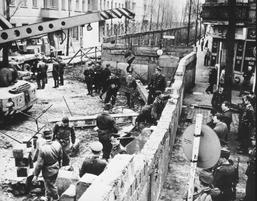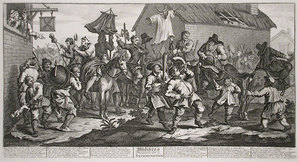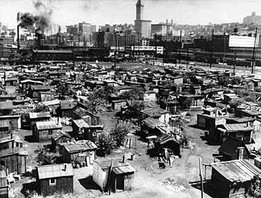World War I

World War I had many causing factors that triggered the war. One cause was the assassination of Austrian archduke, Franz Ferdinand and his wife in 1914 during the Bosnian revolutionary. Another main cause was the many alliances that were made that said if one country declared war on another, these countries will intervene causing a huge amount of tension. Another factor was the feeling of nationalism of every country. According to Merriam-Webster, nationalism means being a strong supporter of the rights and interests of one's country. In other words each country saw that they were the best so they sought to fight other countries that threatened their position at being number one. Going into the war, all countries expected it would be a quick war, victorious for their country, and it would be over and done with by Christmas of the year 1914. Their expectations were extremely high which blinded them from the truth of the reality of the war. The war was complicated and no one was going to stop until they won. World War I actually lasted four years which no country expected. If they had seen the real war they were entering and not the war the expected would occur where they were victorious, they could have prevented a huge amount of the casualites and could have finished the war by christmas, when it should have concluded.
The Berlin Wall

The Berlin Wall was created by the German Democratic Republic in order to blockade, or as the German Democratic Republic says to protect,West Berlin from the fascist party in East Germany. No one expected the wall to expand as it did, leaving no communication from one side of Germany to the next. This tore apart families leaving them unable to see or communicate with each other. Guards watched the walls, punishing anyone that tried to climb or go past the wall. The Germans began to learn the guards' weak spots which enabled some to pass through the barbed wires. They began building more walls so that there would be no possible way to get past the guards and defy their rules. People began to worry that this wall might actually be there forever. People thought it would go up for a week or month but no one expected the wall to stand for nearly thirty years. As no one expected it to be created, no one expected the Berlin Wall to be ever taken down. In 1989, a radical series of political charges began which led the East Germany government to announce that German Democratic Republic citizens were now allowed to visit West Germany and West Berlin. People were thrilled and filled with happiness as many climbed the wall and were reunited with their families whom they have not been able to talk to other than secret light or hand signals from one side of the wall to the other. People began to slowly chip at the wall until the governments used machines and equipment to officially demolish the wall leading the way to Germany unification on October 3, 1990.
Consequences of Failing the Expectations of Society

History shows the unique standards that each town and society followed that became traditional customs. As these "rules" were set, some individuals didn't see these standards as just and failed to respect them. As this occurrence happened more and more often, consequences started to follow this behavior. In France during , villages used a technique called charivari which was loud music that was played by pounding on pots and pans. Village members would do this outside the homes of people having adulterous relationships and unwed mothers. It was looked down upon have premarital intercourse because a woman was supposed to marry before bearing children. This was also seen in England called a skimmington which was down in a huge parade in the villages with others dressed up as the victim where pots and pans were also pounded on towards the “victim.”
The Great Depression

Families being pushed off their land, unable to pay for their own food. With no other choice, families left their land and set out for California in hopes of a new home and work. Families went days unable to expect when there next meal would be or what would happen to them, expectations of their now diminished homes and the question on everyones mind, "Will we be able to return to our homes ever?" With no answers they sought for a new life and they held new expectations for California. They expected to be given home, land, food, education for their kids, money, hospitals, and things they use to have but California couldn't provide them with these things. Their high expectations were soon let down again, unable to survive led people to give up hopeless and homeless.
